At Galilee Green we are located in the Biblical tribal lands of Naphtali. From ancient times this was one of the best places to produce olive oil in the world! For the last 2000 years, as prophesized the land lay barren. It’s only with the recent return of the Children of Israel to the Land that we have once again begun producing some of the best extra virgin olive oil in the world.
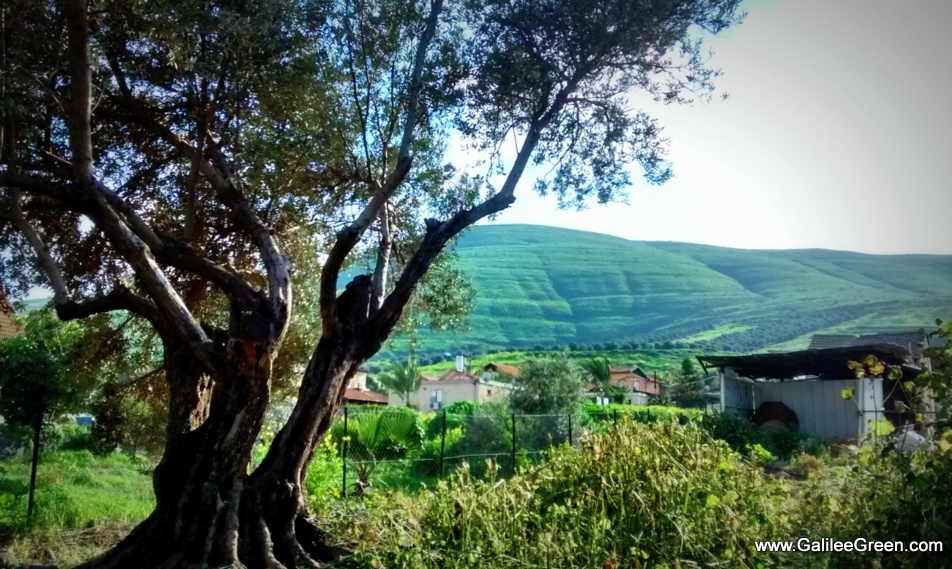
100 year old olive tree growing in Yavne’el
Here are some excerpts from an article on the Israel Foreign Ministry website
Olive trees have been growing in Israel for thousands of years. Today, about 330,000 dunams (81,000 acres) of olive orchards in Israel produce between 15,000 and 16,000 tons of extra-virgin olive oil (EVOO) every year.
Top-grade EVOO, from the first gentle pressing, is not refined or processed and is the least acidic olive oil.
Very little Israeli Olive Oil is Exported
Reuven Birger, the Israel Ministry of Agriculture’s longtime olive-growing chief specialist, says most Israeli oil is for domestic use, while about 1,000 tons are exported, mainly to the United States. Large producers, have been joined in recent years by some 150 boutique brands based mainly on small moshavim, or cooperative farming villages.
These numbers are dwarfed, of course, by Israel’s larger Mediterranean neighbors – in particular, Spain, Greece and Italy. Spain exports an average of 58,000 tons of olive oil every month, accounting for 40 percent of world production.
However, several features set Israeli olive oil apart, according to Zohar Kerem, a food chemist specializing in olives at the Institute of Biochemistry, Food Science and Nutrition of the Hebrew University of Jerusalem.
Fewer Fertilizers
It’s not just that most Israeli olives are irrigated with salty (brackish) and purified wastewater, which is environmentally beneficial, does not diminish the fruit’s quality and actually allows farmers to use fewer fertilizers.
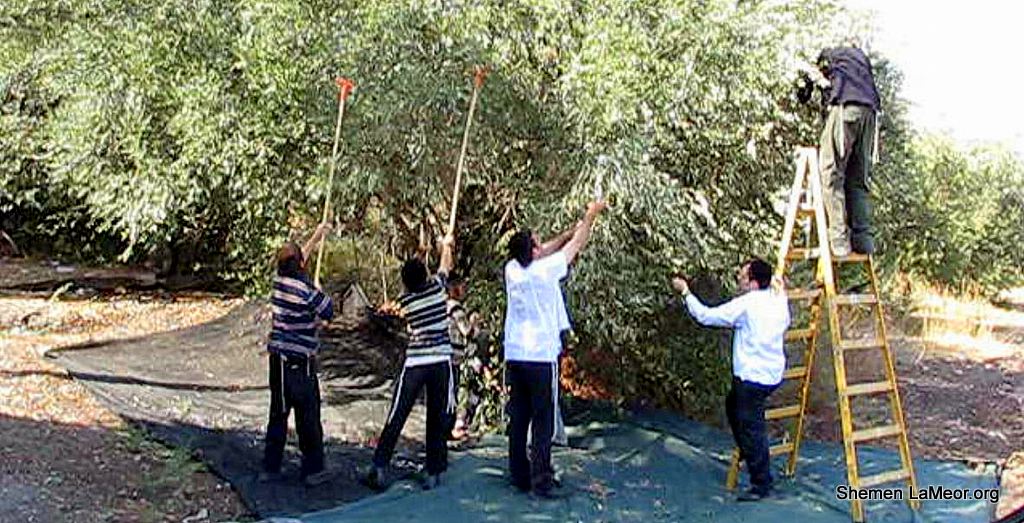
Harvesting Olives by Hand
“All countries produce excellent olive oil, but there are differences,” Kerem says. “In Spain, up to 70% of what they produce is not extra virgin [low acidity]. A large portion is not even virgin [from the first pressing]. That’s because of the tradition of the industry, not because they cannot produce only extra virgin, as we Israelis do.”
Kerem says he’s come to the conclusion that the Israeli “type A” personality is the main reason Israeli olive oil is almost exclusively extra virgin. People tend to be more laid-back in the European Mediterranean region.
“The moment we start, we want to complete the process, and the whole system is built for that,” he explains. “Harvesting is done in a rush, as opposed to Spanish, Italian and Greek farmers who harvest till March. In the Mediterranean area, the optimal time is generally between October and December. The olives start to ripen in October, and frost arrives in December, as the olives are getting overripe. When they’re just ripe, the olives have enough oil and are ready to leave the tree easily.”
From the Tree to the Stone
The next priority is extracting the oil right after picking. Whereas in some other countries the fruit is stored for weeks before extracting the oil, Israeli producers abide by an old Arabic saying, “From the tree to the [grinding] stone.”
“That means when you want to make good olive oil, the sooner you get the detached olives to the mill the better the oil you will get,” says Kerem.
Israel does not even have facilities to refine lower-grade olive oil.
“Virgin oil is a fresh fruit juice, while refined is an industrial product,” Kerem says. “In most countries, they have a second extraction stage and refining. The amount of production here does not support second extraction. Perhaps someday it will.”
Only the Best Tasting Unrefined Olive Oil
Refined oil is cheaper and less acidic, but Kerem says that many of the olive’s natural flavors don’t make it through the refining process. The superior taste of EVOO is important as a marketing advantage because it is regulated by law.
“Olive oil is the only food product in the world whose trade regulations include evaluation of taste and aroma,” says Kerem. “Extra virgin and virgin have to have positive attributes as defined by the regulations with no essential defects. Virgin might have defects in taste that connoisseurs would discern, but it’s okay and costs less, just like with wine.”
Refining also removes many of the health benefits of the oil. EVOO has been shown effective in strengthening the immune system and protecting the body from cancer, stroke, heart disease, obesity, osteoporosis, depression, diabetes, high blood pressure and the effects of oxidation.
Many Varieties in Israel
Another distinction of Israeli olive oil is the many varieties of olive strains growing here, which produce a range of flavors.
Israeli farmers raise not only native varieties but also select varieties of Spanish, Italian and Greek olives. In most other olive-oil-producing countries, only regional native varieties are grown. Again, says Kerem, this difference is due to the Israeli personality as well as know how gained from research shared directly with farmers.
“Here, because of our nature, we brought in other varieties and learned how to grow them successfully. With a lot of agricultural research, we are able to use many of the cultivars — some better in the Negev and some better in the Golan Heights. With the right irrigation and pruning and agriculture, all the varieties grow nicely here and you will see them listed on the bottle.”
He adds that for the past two years, the ministries of agriculture and health have been carefully supervising what goes into Israeli olive oil bottles, in response to the practice of some producers to add lower-quality imported oils to keep the price down. “Today the supervision is very close to that of organic farming,” he says.
The many homegrown varieties many different types of single-variety Israeli olive oils grown in all parts of the country. The taste range goes from mild up to the most robust oils such as fruity, bitter Souri and Coratina.
“We also make our own oil blends — really like wine. “Blending them creates unique flavors and aromas.” [Galilee Green is a blend of Barnea, Koroneiki and Coratina varieties]
If olive oils are starting to sound a lot like wines, that is because they truly are quite similar. After all, both are highly prized fruit extracts that come in an array of varieties, and require the work of experts from field to bottle.
Biblical becomes Modern
Olive oil is mentioned in the Bible as one of seven natural products that distinguish the land of Israel, along with wheat, barley, figs, pomegranates, date honey and grapevines (there’s that wine similarity again!)
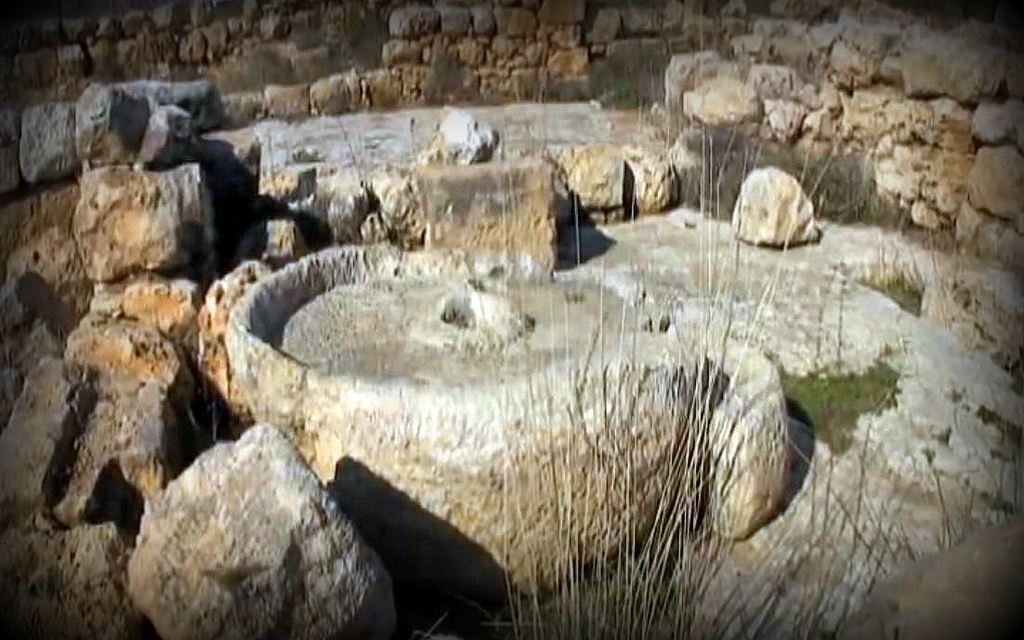
Ancient Olive Press near Modiin
Though olive pits from 6,000 years ago have been discovered in Israel, and orchards of very old trees continue to thrive here – many of them going back several generations — olive expert Reuven Birger says the first trees for the modern olive-oil industry in Israel were planted only in the early 1990s.
“Modern” is defined by density, he says. “We can grow more densely because we irrigate. If we depend on rain, each tree needs a lot of area to thrive. More densely planted trees have greater yields.”
At least 10,000 tons of Israel’s annual supply of olive oil comes from modern orchards. The rest is a product of traditional orchards kept by both Arab and Jewish farmers from northernmost Metulla to southernmost Eilat, says Birger.
The amount of olive oil produced from each crop depends on the fruit’s size and the irrigation level, but normally a one-liter bottle contains oil from four to six kilograms of olives, or about 1,000 individual fruits.
The process of obtaining EVOO from the picked, washed fruit begins by crushing the olives, either the old-fashioned way with giant stones, or with stainless-steel rollers. The mash can then be processed in several ways. One way is to spread it onto thin mats that are then stacked inside a press; if no heat is applied during the pressing, the oil is termed “first cold pressed.”
Alternatively, the crushed olives can be poured into a rotating container with thousands of stainless steel blades that pierce the olive pulp. The oil that sticks to the blades is removed and collected. Because this method does not involve pressure or heat, it better preserves the taste and healthful properties of the olives. [This is how we make Galilee Green Olive Oil]
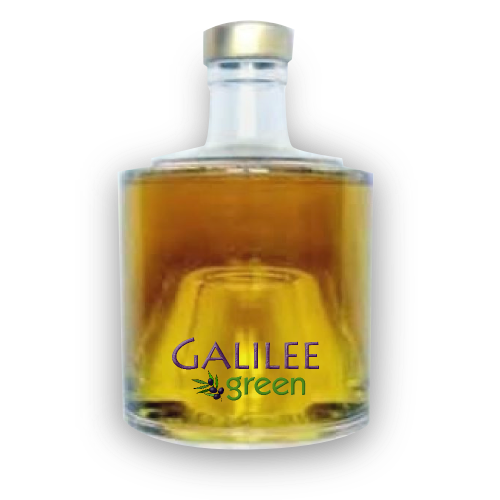

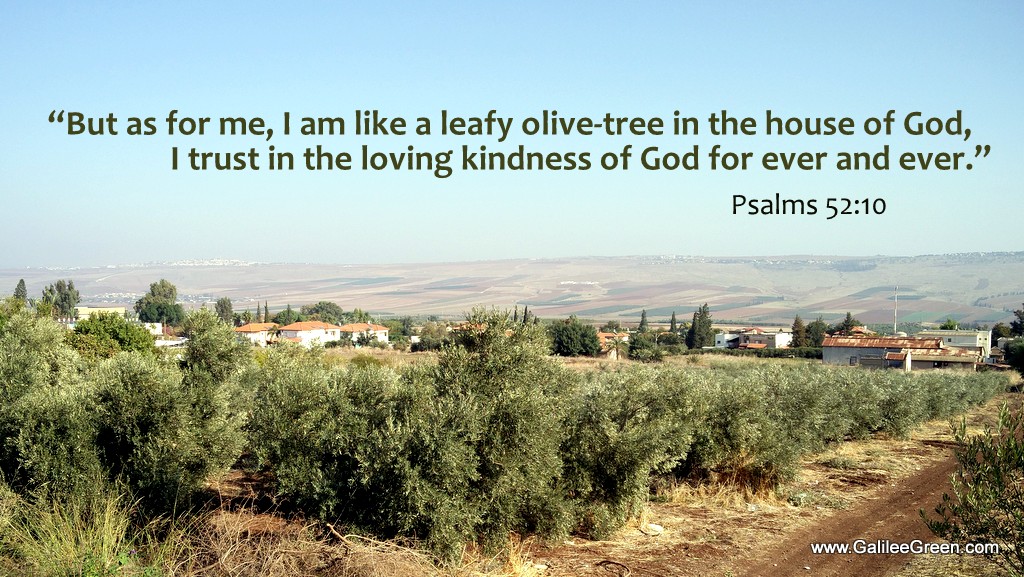
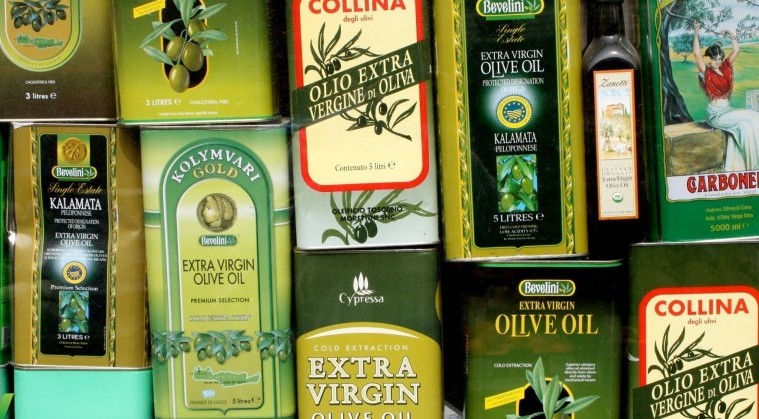
0 Comments